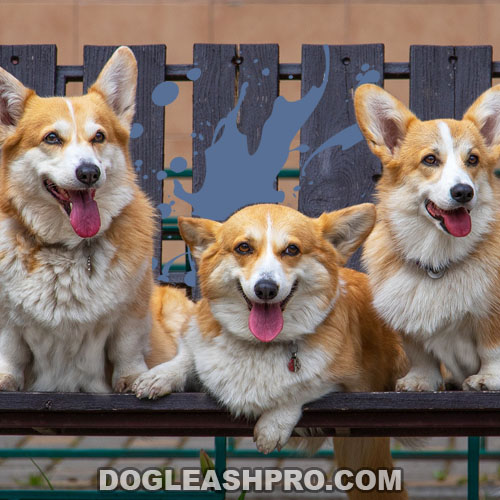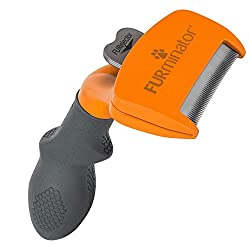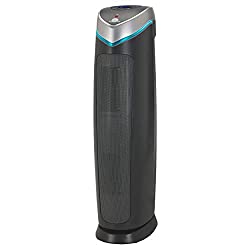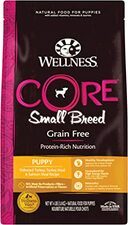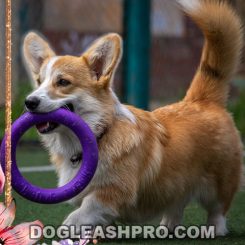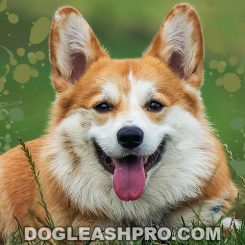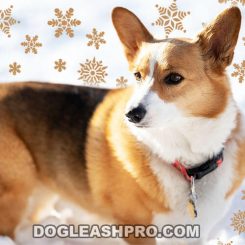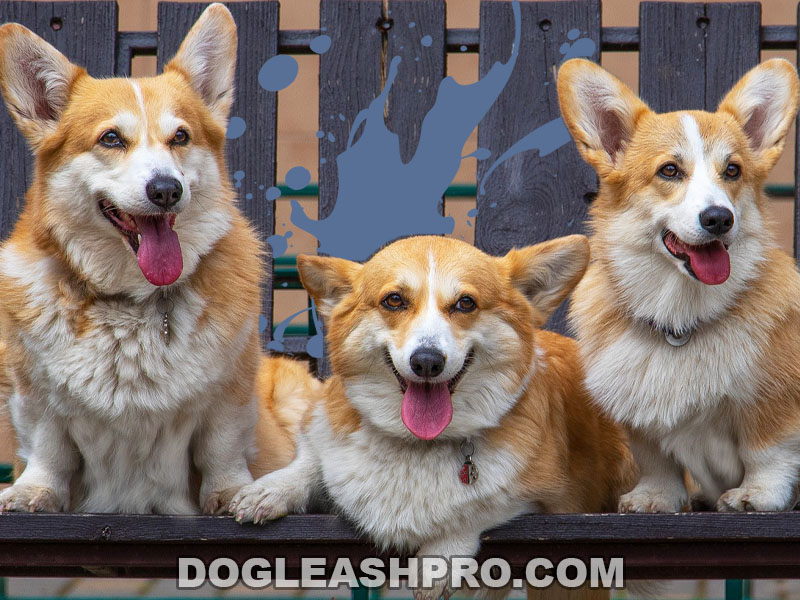
Long Haired Corgis have been getting a lot of attention recently. These downy-looking canines look exactly like their name but with a little something extra. Their coats, as the name suggests, are much longer than the standard Corgis.
If you’re looking to bring home a Long-haired Corgi and want to learn all there is to them, then you’ve come to the right place. This guide will walk you through coat length, coat color, and caretaking details. There’s also an FAQ section for the very curious-minds.
Also known as the Fluffy Corgi, this dog makes for an excellent furry companion as long as you know what you’re doing. So, let’s get on with our Corgi-centric guide to help you get a better understanding of the Long-Haired Corgi.
Table of Contents
Long Haired Corgi: Breed overview
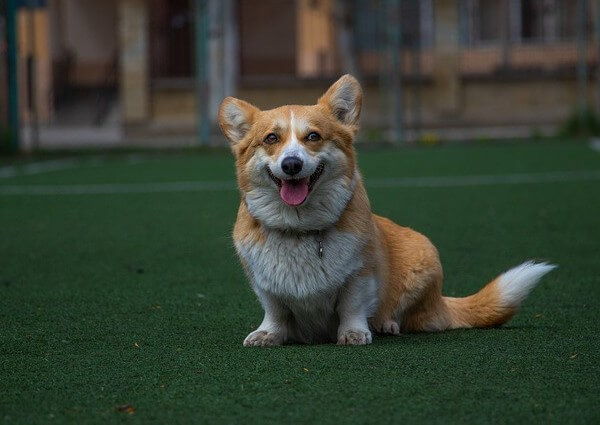
If you’re running short on time and need some quick facts about Fluffy Corgis, this section is for you. Scroll down to discover the Long haired Corgi breed overview table to relevant facts.
| Common Names | Fluffy Corgi, Fluffies |
| Purity | High |
| Purpose | Family dog, Companion dog |
| AKC Recognition | No |
| Size | Small-to-medium |
| Weight | 24-38 pounds |
| Height | 10-13 inches |
| Coat Colors | Red, fawn, sable, brindle and white, blue merle and white |
| Child Friendliness | High |
| Feline Friendliness | Medium |
| Training Difficulty | Low |
| Grooming Upkeep | Medium |
| Exercise Needs | High |
| Breed Health | Good |
| Lifespan | 12-15 years |
| Puppy Costs | $400-$4,000 |
Do Corgis have Long Hair?
Welsh Corgis (comprising of both the Pembroke and the Cardigan Welsh Corgi breeds) have medium-length coats. However, Corgis can have long hair. Also known as the Fluffy Corgis, Long-Haired Corgis do exist and they have long hair with a pretty furry appearance.
These canines generally belong to one of the original Corgi breeds (Pembroke or Cardigan) but are born with a recessive gene. The ‘fluff’ gene causes Long Haired Corgis to look fluffier than their medium-coat counterparts.
Are Corgis Long or short Haired?
Corgis have medium-length double coats. That means the standard Corgi breeds aren’t short-haired at all. On the other hand, some Corgis (lovingly referred to as Fluffy Corgis) can have long-haired coats. This is due to a genetic mutation which we will discuss in more detail below.
What is a Long Haired Corgi?
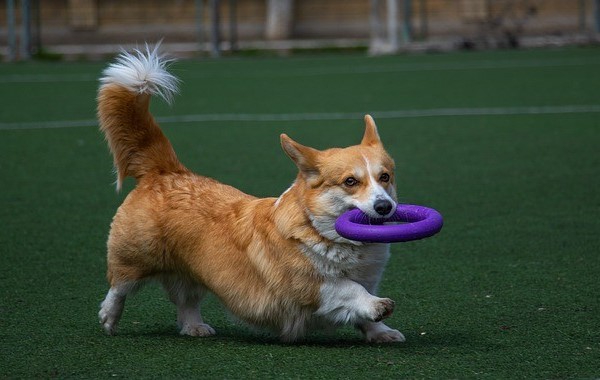
A Long Haired Corgi is born with a genetic mutation (due to a recessive gene) that causes his coat to grow longer than the standard Corgis. If both Corgi parents carry the recessive ‘fluff’ gene, their offspring will generally grow up to be long-haired too. That’s how the Fluffy Corgi variation came about.
Corgi Long Haired gene
Thus far, we’ve mentioned the recessive gene that causes Corgis to develop longer coats. Now, it’s time to take it one step further and understand precisely what this Corgi Long Haired gene does.
It’s likely the first Long Haired welsh Corgi came about accidentally because the gene that causes the long coat is recessive. That means both parents must be carriers of the recessive gene for the litter (or some of the pups) to be born Fluffy Corgis.
Geneticists believe that the Pembroke Welsh Corgis were the likely carriers of the fluffy gene (also known as the FGF5 gene) because they descended from the Spitz family of dogs. These include breeds like the Chow Chow, Pomeranian, Finnish Spitz, and others.
Long Hair vs short Hair Corgi
The main difference between Long Hair Corgi and short Hair Corgi is that Long Hair Corgi has a long-length coat while short Hair Corgi has a medium-length coat. The term ‘short-hair Corgi’ can be misleading because the Corgi breed is described as having medium-length fur according to its breed standard.
This difference in coat lengths is due to a genetic mutation caused by the FGF5 gene. Both Corgi parents need to be carriers of the gene for the pups to develop a fluffy coat.
Additionally, it should be noted that even when both parents carry the FGF5 gene, there’s only a 25% chance that they will produce Long Hair Corgi puppies in any particular litter. In other words, carriers of the fluffy gene can have a litter with standard Corgis and Fluffy Corgis.
2 Types of Long Hair Corgi
Fans of the Corgi breed will not be surprised to learn that there are two types of Long Hair Corgis. These include the Long Haired Pembroke Welsh Corgi and the Long Haired Cardigan Corgi.
If you’re new to the Corgi dog breed and want to know why that is, the answer is simple.
The original Welsh Corgis consist of two distinct Corgi breeds. It stands to reason that because Fluffy Corgis are the result of a recessive gene in the Corgi family, you can find them among both of the original breeds. There’s more on the Pembroke and Cardigan Corgis below.
Long Haired Pembroke Welsh Corgi
The Long Haired Pembroke Corgi is a low-set canine due to his short legs. He is medium-boned and generally has an outgoing or bold personality.
The Long Hair Pembroke Welsh Corgi is double-coated. The outer coat includes slightly coarse hair, while the undercoat is dense and weather resistant. The Pembroke Welsh Corgi Long Hair also has excessive feathering on the ears, chest, legs and under the belly.
Long-haired Pembroke Corgis comes from the Pembroke Welsh Corgis. Pembroke Corgis are renowned for their somewhat fox-like head and appearance.
These canines made their debut in Pembrokeshire, Wales, and were initially used as herding dogs.
Pembroke Welsh Corgis can weigh between 24 and 31 pounds and measure 10 to 12 inches in height. They’re also highly intelligent, eager to please, and love spending time with their families.
Long Haired Cardigan Corgi
The Long Haired Cardigan Welsh Corgi is somewhat heavier-boned than their Pembroke counterpart and has a deeper chest. This canine is also low-set, has upright ears, and a fox-brush (fox-like) tail.
The Cardigan Welsh Corgi Long Hair also sports a double-coat. The top coat contains slightly rough-textured longish hair, compared to the soft-to-touch, dense undercoat.
Their ears are larger and more rounded than the Pembroke Long Haired Corgis.
Additionally, the Cardigan Corgi Long Haired variety is larger and heavier than the Long Haired Pembroke Welsh Corgi.
These canines are related to Cardigan Welsh Corgis, who were bred to be farm dogs. Cardigan Welsh Corgis are one of the oldest canine breeds of the British Isles.
This dog breed can easily weigh 25 to 38 pounds and measure 10 to 13 inches at the withers.
Personality-wise, Cardigan Corgis are a little more reserved with strangers. They are intelligent and medium-to-high energy dogs who love their owners. Cardigan Corgis also excel in obedience and agility training.
Are Long Haired Corgis recognized by AKC and other dog registries?
No, Long Haired Corgis are not recognized by the American Kennel Club (AKC) or other dog registries. In fact, Long-haired Corgis can be disqualified from conformation shows (breed shows) due to their long-length fur. That’s because the AKC breed standard states that Pembroke and Cardigan Corgis should have a medium-length double-coat.
Is the Corgi Long Hair considered a breed?
Since the Corgi Long Hair develops his fluffy coat due to a recessive gene, he is not considered a separate breed. In truth, Long Haired Corgis are Pembroke or Cardigan Welsh Corgis with a genetic mutation. They’re not the result of a hybrid breed or deliberately bred from other canine species to create a new breed.
Are Long Haired Corgi dogs considered a fault by the AKC?
Yes, the Long Haired Corgi dogs are considered a fault by the AKC. Long Haired Corgi dogs can be disqualified from breed or conformation shows on account of their long coat. According to the American Kennel Club (AKC), the breed standard of Corgis does not include long or fluffy coats.
Long coats are actually considered an “extremely serious fault” that can result in elimination from a show.
In fact, The Kennel Club, based in the UK, and the United Kennel Club (UKC) based in Kalamazoo, Michigan have similar standards of faults for the Corgi breed.
Long Haired Corgie physical appearance
While the Long Haired Corgie doesn’t look too different from his Corgi relatives, there might be a few physical differences worth noting in the Pembroke and Cardigan Long Haired Corgis.
Here are a few of them:
Long Haired Pembroke Corgi
The Long Haired Pembroke Corgi has a fox-like head. Their elongated snouts, prick ears, and intelligent expression further encourages their vulpine appearance. Besides that, their tails are generally docked two to five days after birth.
These canines are medium-boned and slightly smaller in weight and size compared to Cardigan Corgis. They are double-coated, and their top coat includes slightly rough long hairs. Their undercoat is soft-to-the-touch and dense to provide weather resistance.
Overall, Long Hair Pembroke Welsh Corgi have a downy look and feathering (long, float hair) around the ears, chest, and underparts.
Long Haired Cardigan Welsh Corgi
Cardigan Long Haired Corgis have a heavier bone structure, and their heads are wider than Pembrokes. They also have larger eyes and ears. Cardigan Fluffies have deeper and more rounded chests, making them appear more prominent than Pembroke Corgis.
One of the more recognized features of the Cardigan Corgis is his brush-like tail. The term ‘brush-like’ means their tails look plumed and fuzzy. The Long Haired Cardigan Corgi’s tail and facial appearance have been described by many canine enthusiasts as being similar to foxes.
Long Haired Corgi with tail
The Long Hair Corgi with tail is always a Cardigan Corgi with a long, feathered tail that look like fox tail. Since the tails of Pembroke Corgis are docked a few days after birth, they don’t feature in this category.
LongHair Corgi size, height and weight
If you’re wondering what to expect in terms of the LongHair Corgi’s size, this section can help. We’ve divided the section between the Long Haired Pembroke Welsh Corgi and the Long Haired Cardigan Corgi to make for an easier read.
Fluffy Pembroke Welsh Corgi
Most animals are sexually dimorphic, meaning the males and females of the breed have certain differences. As far as Pembroke Fluffies are concerned, the males and females of the breed differ only slightly in weight.
For example, female fluffy Pembroke Welsh Corgi can weigh up to 24 to 28 pounds, whereas the weight of the male fluffy Pembroke Corgi can range between 24 and 31 pounds. This puts them in the small-to-medium canine category.
Both male and female Long Haired Pembroke Corgi measures 10 to 12 inches at the withers (shoulders).
| Height | Weight | Length | |
| Male | 10-12 inches | 24-31 pounds | 22-26 inches |
| Female | 10-12 inches | 24-28 pounds | 22-26 inches |
Fluffy Cardigan Welsh Corgi
Long Haired Cardigan Corgis are slightly bigger in size than their Pembroke counterparts. This is likely on account of their heavier frame-set. Like the Fluffy Pembroke Welsh Corgis, male and female Fluffy Cardigan Welsh Corgi differ in size and weight.
For instance, males can weigh 30 to 38 pounds compared to the 25 to 34 pound range of females. Besides that, both genders measure 10 to 13 inches in height.
| Height | Weight | Length | |
| Male | 10-13 inches | 30-38 pounds | 23-27 inches |
| Female | 10-13 inches | 25-34 pounds | 23-27 inches |
Long Hair Corgis coat colors and types
Long Hair Corgis (both Pembroke and Cardigan) don’t differ too much in terms of coat type. Both breeds have long-length double coats. Their top coats are rough-textured and contain long hairs. The undercoats are dense, soft, and weather-resistant.
However, Pembroke and Cardigan Long Haired Corgis can differ in terms of coat colors. Scroll below to learn the recognized colors of both breeds.
Long Haired Pembroke Corgi Coat Colors
The five recognized Pembroke Corgi coat colors are fawn, sable, red, black-headed tricolor, and red-headed tricolor.
Red
Red is a genetically dominant color among Pembroke Corgis. These canines aren’t fiery red in hue. Instead, their color is more of a cinnamon or light burgundy.
Red Corgis are often a mix of red and white fur, with their heads, necks, backs, and behinds being predominantly red. Their underparts and legs are often white.
Fawn
Fawn Corgis are much like their red-colored counterparts. The only difference is their color is a much lighter shade of red.
Sable
Sable Corgis are a mixture of red and black fur. These canines have red and black hairs on their back, and the edge of their ears is pretty dark too. Their most distinctive feature is the widow’s peak of ebony hair that forms on their forehead.
Red-headed Tricolor (RHT)
These canines are a mixture of red, black, and tan colors. The largest concentration of dark hair is found on their backs, whereas the head and ears are red. A few red-headed tricolors can also have dark hairs on their head in the shape of a cap. They also have white fur on their chest and underbelly.
Black-headed Tricolor (BHT)
Black-headed tricolors have black, red, and tan fur. The main difference between BHTs and RHTs is that Black-headed tricolors Corgis have more black fur than red or tan. Additionally, the black hair of the BHTs does not blend with the red hair.
These Corgis have darker-colored ears, heads, and backs. Like the RHTs, these Corgis have white fur on their snouts, throat, chests, and underbellies.
Long Haired Cardigan Corgi Coat Colors
Recognized colors for Cardigan Corgis include brindle and white, blue merle and white, sable and white, and red and white.
Brindle and white
Brindle is sometimes referred to as the striped or tiger-striped pattern. Brindle Corgis can have red-brown, chocolate-brown, or dark brown base colors.
Blue Merle and white
The merle or dappled pattern presents a light base coat and dark color blotches of the same shades. Blue merle in Corgis can range from light silver to gun-metal gray base colors. The splotches are darker shades of the relevant base color.
You may be interested in: Merle Corgi (Complete Guide)
Sable and white
Sable Long Haired Cardigan Corgi is similar to Long Haired Pembroke Welsh Corgi of the same color.
Red and white
Red Cardigan Corgis can come in various shades of red, from the lightest to the darkest. Their red fur is typically found on the top of their heads and their backs. The white fur (or markings) is present on their face, throat, underbellies, feet, and under-tails.
Long Haired tri color Corgi
The term Long Hair tri color Corgi is often used to describe Long Haired Pembroke Corgi with a three-color coat. The three-shade combination will generally include black, tan, or white hues.
Long Haired blue merle Corgi
Long Haired Blue Merle Corgis generally have a light grey or grey base color with dark grey blotches. These canines can also have butterfly noses (with patches).
Black and white Long Haired Corgi
Black and white Long Haired Corgis have sable fur with white markings around the face, neck, underbelly, and feet. This pattern makes them resemble Border Collies to an extent.
Do Long Haired Corgis shed more than regular Corgis?
Corgis are double-coat dogs, and like most double-coats, they go through heavy seasonal shedding twice a year. Besides that, the breeds also shed nominally throughout the year.
Since Long Haired Corgis are neither a different breed nor a variation, most of their physiological quirks are the same as the standard Corgis. Fluffy Corgis are simply the result of a genetic mutation among the Pembroke and Cardigan Welsh Corgis.
In short, Long-haired Corgis shed exactly the same as standard Corgis.
The difference is when Fluffy Corgis have their seasonal blowout, it may seem like they’re shedding more because of their long-length coats.
Fluffy Long Haired Corgi temperament and personality
Corgis are ranked 11th on the list of Stanley Coren’s The Intelligence of Dogs. These canines are loving, eager to please, and easy to train.
If you plan on bringing home a Fluffy Long Haired Corgi, be prepared to exercise and play with him or her. That’s because Corgis are medium-to-high-energy dogs and they require at least 60 minutes of daily exercise. Moreover, Corgis need plenty of mental stimulation to keep busy and ward off behavioral concerns.
Due to this, many dog owners will allow their Corgis to roam freely in their backyard because any form of physical activity – be it walking, running, chasing, or playing – is a great form of exercise.
If you do allow your Corgis to head outside and play in the backyard, you may find the electronic dog door to be very helpful because this automatic doggy door will allow your pooch to head outside on their own and come back into the house when they’re ready.
What’s great about the electronic doggy door is that it is programmable and pet owners can customize curfew hours. This way your Long Haired Corgi can enjoy the outdoors during the day while staying safe indoors at night.
If you do choose to get an electronic dog door for your pooch, make sure your yard is fully fenced-in. Keep in mind that some towns or counties have zoning laws that prohibit physical fences. If you’re in this town or county, don’t fret!
A great alternative to the expensive physical fences is the wireless dog fence which will also keep your furry friends safe and contained within your backyard. Also known as the invisible dog fence, many dog owners prefer this because it is cost-efficient, adaptable to any and all types of terrains, and does not compromise your beautiful backyard view.
Simply playing a game of fetch with your Corgis is a great exercise as well. Feel free to check out our list of the Best Indestructible Dog Toys for your little fur babies. These toys are durable, safe, and made with your furry friends in mind.
Corgis have bold, vibrant personalities. However, Long Hair Cardigan Corgis can be a little wary of strangers. They need time to adapt, but once they’re familiar with you, their love and affection know no bounds.
As we can see, Corgis are good family pets and are excellent with children. They do better in homes with backyards or plenty of running space. One of the good things about this breed is that they’re not very vocal and will generally bark to alert their owners.
CHECK OUT: Do Dogs Get Tired Of Barking?
Do LongHaired Corgi make good family pets?
If you’re unsure how a LongHaired Corgi will behave around your kids, you’ll be happy to learn that Long Haired Corgis are really good with children. They are not only loyal but also affectionate.
What’s more, Fluffy Corgis are generally tolerant and patient with your little ones. Long Haired Corgis love spending time with their families and they make excellent furry companions.
However, they’re more suited for larger families (where they’re not left alone for too long) or to dog parents who live active lifestyles.
Corgis that are left alone for too long may develop separation anxiety and stress and this could lead to destructive behaviors like chewing on furniture or items around the house. It may be helpful to give your K9 friends dog bones that are 100% natural and high quality.
Chewing on doggy bones is also a great way to relieve their pent-up energy and anxiety.
Corgi with Long Hair training
Corgi with Long Hair requires early socialization and training to become a well-adjusted adult. As we stated earlier, Corgis are one of the smartest dog breeds in the world and are easily trained. Additionally, these dogs are eager to please, making your job as a dog parent much more effortless.
If you need more clarification about how to go about training your Long Hair Corgi, it’s best to get in touch with a professional trainer and get a few tips.
An even better idea is to enroll your Corgi puppy into a reputable obedience school to learn how trainers use positive reinforcement to explain acceptable behavior to canines.
CHECK OUT: How to Crate Train A Puppy in 6 Steps
Long Haired Corgi exercise requirement
Long Haired Corgis require at least one (1) hour of exercise every day to expend their excess energy in order to stay calm and tranquil at home. Dog parents can break up this time frame into smaller segments if they’re short on time.
If these canines don’t receive enough exercise, they can become susceptible to destructive behaviors, such as chewing on furniture or shoes or excessive barking.
Generally, it’s best to walk your canine during the dawn or dusk hours when the sun isn’t too harsh. When walking your Long Haired Corgi, be sure to use a retractable dog leash so you have full control over him while still allowing him the space to walk and explore.
Corgi Long Haired grooming and cleaning
Grooming the Corgi Long Haired variety isn’t too taxing for pet parents. You can brush them for 10 minutes daily or three times a week for about 15 to 20 minutes. This will help keep your furry pal’s coat looking smooth and tangle-free.
We highly recommend using a de-shedding tool during the heavy shedding seasons (fall and spring) and using a slicker brush when brushing your Long Haired Corgi throughout the year.
When it comes to bathing your Long Haired Corgis, the good news is that they don’t need to be bathed too often. Bathing them once every two months should be fine. When bathing your pooch, be sure to use a dog shampoo that contains organic ingredients and is free from harmful chemicals.
This will help to remove impurities from his fur and keep him smelling fresh and clean again.
In between bathing sessions, you can simply use doggie wipes to wipe clean their paws, behind, skin, coat, and face.
Next, don’t forget to keep your K9 friend’s oral hygiene in tip top shape. It’s best to brush their teeth daily. However, we understand that many dog owners do have a busy schedule so brushing your pup’s teeth at least 3 to 4 times a week should be fine as well.
When brushing your furry friend’s teeth, be sure to use a dog toothpaste that contains an enzymatic formula. That’s because the enzymatic formula in the doggy toothpaste helps to break down plaque, control tartar formation, and help reduce bacteria. The toothpaste should also be safe to swallow.
Finally, making sure your Corgi’s nails are short is important. Long nails can affect your K9 friend’s walking and lead to injuries. If you start to hear the clickety-click sound of the nails tapping against your hardwood floor, then it is time to trim their nails.
You can start by using a dog nail clipper and then you can use a dog nail grinder to precisely trim the nails and avoid cutting the quick. What’s great about the dog nail grinder is that it is quiet and features a precision diamond drum bit grinder.
Below is a table of the Long Haired Corgi’s grooming regimen and the grooming frequency:
| Grooming Technique | Frequency |
| Hair Brushing | 1x daily-10 mins (long coat), 3x weekly-15 mins (short coat). |
| Bathing | Every 4 weeks or as required. |
| Nail Trimming | Every 3 weeks or as needed. |
| Teeth Brushing | 1x daily. |
| Eye Care | Wipe the crust around the eyes once daily. |
| Ear Care | 1x a month. |
Are Long Haired Corgis hypoallergenic?
No, Long Haired Corgis are not hypoallergenic because they experience seasonal shedding twice a year and have reasonable shedding through out the year. Fluffy Corgis shed their undercoats heavily twice a year (during spring and fall) to better adapt to changing temperatures.
During this time of the year, you can expect more fur and dander on your furniture, sofa, carpet, and hardwood flooring. If this bothers you or your family for any reason, we highly recommend that you get an air purifier with UV light filters to get rid of dust, dander, germs, and odor from the air.
WANT MORE INFORMATION? Are Corgis Hypoallergenic?
Do Long Haired Corgi shed?
Yes, Long-haired Corgis do shed. They’re medium-to-high shedders and they go through two heavy shedding episodes per year. The rest of the year, their shedding isn’t excessive, as it only occurs due to the completion of the hair cycle.
If you like to keep your home nice and tidy and free of Corgi fur all throughout the year, we recommend that you get a durable vacuum cleaner that can easily get rid of dander and pet fur on your sofa, furniture, and in hard to reach places.
DON’T MISS: Do Corgis Shed? 15 Tips to Manage Corgi Shedding!
Long Hair Corgi food and diet
The Long Hair Corgi require a nutritious and healthy diet to achieve optimal health. The right diet will help your furry pal unlock his true potential, while the wrong one can result in health concerns like food allergies.
The easiest and least complicated way to understand what your Corgi’s diet should contain is to listen to your veterinarian. Your vet can recommend a pet food brand tailor-made for your pup’s needs.
Long Haired Corgi health issues
All living things are susceptible to health issues due to many reasons. If you’re curious about the kind of health problems Corgis can develop, this next section can help.
Hip and elbow dysplasia
Dysplasia is an inherited disease that affects joint development. The condition can worsen to arthritis if the affected pup isn’t cared for adequately. Symptoms of hip dysplasia or elbow dysplasia include difficulty lying down or getting up, lethargy, and reluctance to move.
Degenerative Myelopathy
Canine Degenerative Myelopathy is a neurological condition that can cause weakness in the hind legs of canines. There’s no cure for the disease as of yet, but vets can prescribe medications, exercise, and dietary supplements to help reduce the symptoms.
Eye Problems
Fluffy Corgis are prone to developing eye problems, such as cataracts or progressive retinal atrophy. These conditions can be treated successfully, but the disease needs to be detected early for a complete recovery.
RELATED: How To Soften Dog Eye Boogers?
Food Allergies
Some Corgis have delicate digestive systems and can develop food allergies. Generally, the breed is allergic to food like dairy products, chicken, eggs, and soy.
Kidney Disease
Corgis are prone to developing Glomerulonephritis. This is a genetically-inherited disease that causes kidney damage or failure. In the worst-case scenarios, the illness can cause organ failure. Vets can detect the disease through yearly urine tests.
Back Problems
Intervertebral disc disease is common in canines with short legs and long backs like Corgis. This type of disease develops when the cushion between the vertebrae ruptures or slips.
Obesity
Corgis are prone to being overweight. Unfortunately, being obese can lead to secondary health concerns, such as hip or joint problems in Corgis. That’s why experts advise pet parents to be careful about the breed’s diet and exercise requirements.
Long Haired Corgi lifespan
The average lifespan of a Long Haired Corgi ranges from 12 to 15 years. Your canine can live a long and healthy life if you focus on his care needs, especially vet visits, diet, and exercise.
Long Haired Corgi breeder
If you’re hoping to bring home a Long Haired Corgi soon, it’s best to start looking for reputable Long Haired Corgi breeders in your area.
Since Long Haired Corgis are the result of a genetic mutation, we want to be transparent and let you know that they are not always readily available.
And, it is possible you won’t find too many Long Hair Corgi breeders because Fluffy Corgis are only just beginning to get popular.
However, prospective pet parents should note that opting for an ethical and responsible Long Hair Corgi breeder or standard Corgi breeder is much better than pet stores. Breeders are meticulous about testing their dams and sires to ensure they’re not carriers of genetic diseases.
Aside from that, breeders generally house-train and begin early socialization of puppies to help them adapt to their new homes better.
Long Haired Corgi puppy
Long Hair Corgi puppies are like every other puppy in most respects. That’s why it’s a good idea to bring home a Long Hair Corgi puppy only after the 10-week mark. Long Hair Corgi puppies need to stay with their mother and littermates to learn essential skills, such as grooming habits and acceptable play behavior.
Pet parents can book their Long Haired Corgi puppies and wait for them to reach the right age before picking them up. You can use the waiting period to puppy-proof and prep your home and make it safe for your pet’s arrival.
Since Corgi puppies Long Hair are low-set dogs, it’s best to cordon off areas of the house that include stairs. It’s also a good idea to puppy-proof sharp angled furniture or anything sharp that your pup might bump into.
Long-Haired Corgi price
A well-bred Corgi puppy can cost anywhere between $400 to $2,000. Long Haired Corgis, however, can cost more because they’re somewhat rare. That’s why the price range of a Fluffy Corgi is higher and can range from $400 to $4000.
Places to find Long Haired Corgi puppies for sale
If you’re on the lookout for Long Haired Corgi puppies for sale, we can help. This section includes breeder details that Corgi enthusiasts can utilize in their search for their furry best friend.
Based in Washington, Kansas, Quivira Corgis (quiviracorgis.com) is a small family-run enterprise that may have Long Haired Pembroke welsh Corgi puppies for sale. Each puppy from these breeders comes with a 2-year health guarantee, and they also take care of tail-docking procedures.
Another excellent starting place for pet lovers searching for Long Hair Corgi puppies for sale is Curby’s Corgis (curbyscorgis.com/the-fluffy-coat-girls). This is another family-run operation based in Utah. This breeder has standard and fluffy coat Corgis, so there’s something for everyone.
If you can’t decide between a standard Corgi or a Long Haired Corgi puppy for sale, that’s no problem at all. The Perfect Corgi (theperfectcorgi.com) can offer Corgi lovers in Missouri the option of observing the difference between the two up close and personal – before you make your decision.
Finding a healthy Long Hair Corgi for sale
As adorable as puppies are, if you think you’ll do better with an adult Long Haired Corgi – we’ve got you covered. This section covers options for readers looking for a more mature adult Long Hair Corgi for sale.
Colorado Corgis and Friends (corgisandfriends.com) is a not-for-profit organization that is doing their best to help their Corgis find their fur-ever homes. They may or may not have Long Haired Corgi for sale, but you can search for and adopt the perfect Fluffy Corgi to suit you!
We know we’ve already mentioned Curby’s Corgis (curbyscorgis.com/the-fluffy-coat-girls) in the puppies section, but Curby’s is a bit like the jack-of-all-trades of the Corgi breeding world. They also have adult Long Haired Corgis for sale, so interested parties can take a look.
Our last recommendation for adult Long Haired Pembroke welsh Corgi for sale is ArmnalegRanch (armnalegranch.com). Based in Texas, this reputable breeder deals with Pembroke, Cardigan, and American Corgis and has been in business since 2002.
Long Haired Corgi mix
If you’ve been paying attention thus far, you know that Long Haired Corgi aren’t a hybrid breed. They’re not even a deliberate variation. However, designer canine lovers will want to go through this section if they want to discover some of the Long-hair Corgi mixes available.
Long Haired Dachshund Corgi mix
A Dorgi, or a Corgi Long Haired Dachshund mix, is a designer dog breed with a Dachshund and Corgi as the parent breeds. If you’re looking for variety within a breed, the Long Haired Dorgi should be perfect for you.
These canines have adorable fox-like faces with three coat types: smooth, wirehair, and long hair. The Long Haired Dachshund and Corgi mix can be the ideal family dog, thanks to his lovable and playful personality.
Additionally, Long Haired Dachshund Dachshund Corgi mix, is easy to groom, is apartment-friendly, and has moderate exercise needs. The Long-Haired Dachshund Corgi mix has all the right qualities to make a great pet.
Long Haired Chihuahua Corgi mix
The Chigi or Corgi Long Haired Chihuahua mix is a hybrid of the playful Chihuahua and vibrant Corgi breeds. These canines are a recent addition to the dog-keeping world, but they’re gaining popularity fast.
The Corgi Chihuahua mix Long Hair measures around 6 to 12 inches and weighs 10 to 20 pounds, making this breed ideal for apartments. Moreover, the Corgi Long Hair Chihuahua mix can be short or long-haired and is available in various colors.
The Long Hair Chihuahua Corgi mix is definitely worth a look if you’re looking for a mini-dog with a large personality. They can make a great addition to any family thanks to their outgoing and friendly personality.
Another point to note is that the Long-Haired Chihuahua Corgi mix isn’t hypoallergenic and prone to moderate shedding year-round.
Long Haired German Shepherd Corgi mix
Imagine a German Shepherd’s striking face on a Corgi’s body. That’s what the German Shepherd and Corgi mix looks like. Aside from being lively, this hybrid is very protective of his owners and family.
If you’re looking for a small-sized guard dog, complete with bark alerts, the Corgi and German Shepherd mix might suit you!
Long Haired Corgi: Pros and Cons
If you’re having a difficult time making up your mind about bringing home a Long Haired Corgi, go through our pros and cons table to reach your decision.
| Pros | Cons |
| Good with pets. | Can be high shedders. |
| Loving. | Coat can develop matting or tangles easily. |
| Easy to train. | Prone to certain diseases. |
| Good with kids. | Can become destructive. |
| Highly Intelligent. | High-energy canine. |
| Apartment-friendly. | Can’t be left alone for long periods. |
Is the Corgi Long Haired right for me?
Fluffy Corgis are intelligent canines with big hearts. Once they’re a part of your family, you can expect their complete devotion. On the flip side, as herding dogs, the breed has a lot of stamina, requires physical and mental stimulation, and can’t be left alone for long periods.
Long Haired Corgis can make excellent pets if you’re willing to put in the effort and care for this breed needs. If you’re going to be a first-time dog parent, you might want to opt for breeds like the Golden Retriever or the Poodle.
Related Questions
Long-haired Corgis are also called Fluffy Corgis. They get their name due to their long-length coat and fuzzy appearance.
A Long-Haired Corgi can cost between $400 to $4,000, depending on the breeder’s reputation, location, and the puppy’s coat color. For example, brindle Corgis tend to cost more.
Since Fluffy Corgis are the result of a recessive gene, they’re not always readily available. However, they are garnering more attention recently, which means more breeders are likely to take an interest and add to their supply and numbers.
DISCLAIMER: THIS WEBSITE DOES NOT PROVIDE MEDICAL ADVICE
The information, including but not limited to, text, graphics, images and other material contained on this website are for informational purposes only. No material on this site is intended to be a substitute for professional veterinary advice, diagnosis, or treatment. Always seek the advice of your veterinarian or other qualified health care provider with any questions you may have regarding a medical condition.
Resources:
https://cardiganhealth.com/research/
https://pubmed.ncbi.nlm.nih.gov/17850278/

With over five years of specialized experience as an animal writer, my expertise lies in dog nutrition, health, behavior, grooming, and training. I am dedicated to delivering helpful and informative content that caters to the well-being of our furry friends. My primary goal is to empower pet owners with knowledge and ensure our canine companions thrive in health and happiness. In my free time, I love volunteering at local dog rescue centers.
